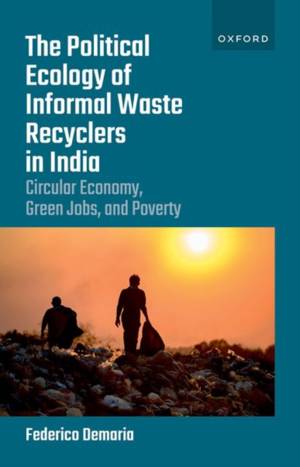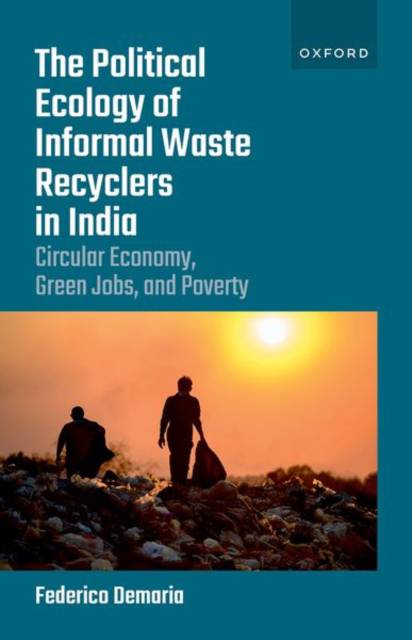
- Afhalen na 1 uur in een winkel met voorraad
- Gratis thuislevering in België vanaf € 30
- Ruim aanbod met 7 miljoen producten
- Afhalen na 1 uur in een winkel met voorraad
- Gratis thuislevering in België vanaf € 30
- Ruim aanbod met 7 miljoen producten
Zoeken
The Political Ecology of Informal Waste Recyclers in India
Circular Economy, Green Jobs, and Poverty
Federico DeMaria
Hardcover | Engels
€ 145,45
+ 290 punten
Omschrijving
Waste is increasingly a site of social conflict. The questions related to waste management are not merely technical; what, how, where, and by whom become intrinsically political questions. This book is about the power relations in recycling, from the viewpoint of political ecology and ecological economics. Informal waste recyclers are invisible for citizens and public policy. This book focuses on environmental conflicts involving them, with two emblematic case studies from India. Firstly, ship breaking, where the metabolism of a global infrastructure, namely shipping, shifts social and environmental costs to very localized communities in order to obtain large profits. Secondly, the conflict around municipal solid waste management in Delhi shows how environmental costs are shifted to urban residents, and recyclers are dispossessed of their livelihood source: recyclable waste. The first is an example of capital accumulation by contamination, while the second involves both dispossession and contamination. The struggles of informal recyclers constitute an attempt to re-politicize waste metabolism beyond techno-managerial solutions by fostering counter-hegemonic discourses and praxis. The book presents a range of experiences, mostly in India but with examples from all over the world, to inform theory on how environments are shaped, politicized, and contested.
Specificaties
Betrokkenen
- Auteur(s):
- Uitgeverij:
Inhoud
- Aantal bladzijden:
- 222
- Taal:
- Engels
Eigenschappen
- Productcode (EAN):
- 9780192869050
- Verschijningsdatum:
- 30/12/2023
- Uitvoering:
- Hardcover
- Formaat:
- Genaaid
- Afmetingen:
- 140 mm x 216 mm
- Gewicht:
- 403 g

Alleen bij Standaard Boekhandel
+ 290 punten op je klantenkaart van Standaard Boekhandel
Beoordelingen
We publiceren alleen reviews die voldoen aan de voorwaarden voor reviews. Bekijk onze voorwaarden voor reviews.











